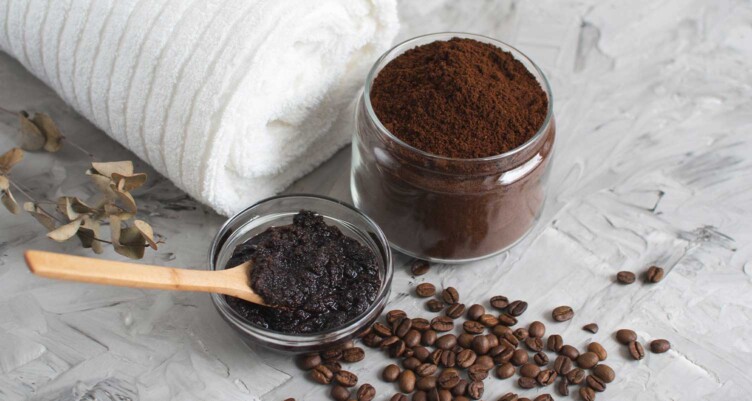Disposing of Coffee Grounds Down the Sink: Permissible or No? - What You Should Know
Disposing of Coffee Grounds Down the Sink: Permissible or No? - What You Should Know
Blog Article
The content listed below on the subject of What are the consequences of putting coffee grounds is definitely compelling. Read it yourself and figure out what you think about it.

If you're an avid coffee drinker, you could be wondering about the very best method to get rid of your coffee grounds. While it might seem convenient to wash them down the sink, this technique can result in several concerns for both your plumbing and the atmosphere. In this short article, we'll explore whether it's secure to put coffee premises down the sink and talk about alternative disposal approaches to think about.
Threats of Putting Coffee Grounds Down the Sink
Plumbing Issues
One of the key interest in taking care of coffee grounds down the sink is the threat of clogging your pipelines. Coffee grounds do not dissolve in water and can accumulate with time, developing a thick sludge that can block drains pipes and result in pricey plumbing repair services.
Environmental Impact
Past the prospective damages to your plumbing, placing coffee grounds down the sink can additionally damage the setting. When cleaned right into the sewer system, coffee grounds can contribute to blockages in sewer lines and therapy centers. Furthermore, the high concentration of organic matter in coffee premises can deplete oxygen levels in rivers, negatively impacting aquatic life.
Alternatives to Disposing of Coffee Grounds
Composting
One environment-friendly choice for taking care of coffee grounds is to compost them. Coffee premises are rich in nitrogen, making them an excellent enhancement to compost piles or containers. As they disintegrate, they include nutrients to the soil, boosting its fertility and texture.
Trash Disposal
If you do not have a composting setup, one more alternative is to simply throw your coffee grounds in the garbage. Make certain to secure them in a compostable bag or container to prevent odors and leakage. While this technique does not supply the very same ecological benefits as composting, it's a safe and convenient method to dispose of coffee grounds.
Tips for Proper Disposal
Use a Sink Strainer
To prevent coffee premises from entering your sink's drainpipe in the first place, consider making use of a sink strainer. These low-cost gadgets catch strong bits, consisting of coffee premises, preventing them from causing clogs.
Routine Maintenance
Regardless of exactly how you select to dispose of your coffee premises, it's important to keep your plumbing consistently. Schedule regular drainpipe cleansings to eliminate any kind of buildup and make certain that your pipes stay clear and free-flowing.
Verdict
While it may be appealing to clean coffee grounds down the sink for convenience, doing so can have severe effects for your plumbing and the environment. Instead, think about composting your coffee premises or dealing with them in the trash. By embracing accountable disposal methods, you can enjoy your coffee guilt-free while reducing your environmental footprint.
Coffee Grounds Down The Drain: Are They OK?
Can Coffee Grounds Go Down the Sink?
You may be thinking, “But I pour them down the sink drain every day and I’ve never had a clogged drain!” You see, coffee grounds come from coffee beans, which are virtually rock hard by the time they’re ground and brewed. You certainly wouldn’t want to grind up the pit from a peach, apricot, or nectarine that is about just as hard because they wouldn’t break down like other foods, and it’s the same with coffee beans!
If you usually grind coffee beans in the garbage disposal because it seems the cleanest and convenient, we don’t fault you for that. And anyone who has ever had to clean up the trash with spilled coffee grounds after a dog got into it would understand the rationale. Unfortunately, coffee grounds do not break down in water, so instead of grinding up and washing away as normal foods do in a garbage disposal, they clump together and as time goes by, the grounds can form a clump and pack the drain until it develops a clog.
What to Do With Coffee Grounds
So, what do you do with coffee grounds if you can't put them down the drain? You could of course just throw them in the garbage, but we encourage you to give these practical uses for them a try!
Since coffee grounds contain key minerals for plant growth, you can use them to fertilize your garden. Coffee grounds not only fertilize gardens because they are mineral-rich, but they are also great at absorbing contaminants in the soil, particularly heavy metals. Coffee grounds are said to attract worms, which help gardens flourish. You can use coffee grounds as fertilizer by sprinkling them around your plants. You can compost your coffee grounds and use them at a later time. Coffee grounds are great insect repellents when you place them in bowls or sprinkle them around the areas you want to repel insects. To remove fleas from your dog or cat, simply shampoo your pet then rub coffee grounds throughout their fur. Rinse them off and dry as usual. Like baking soda, used coffee grounds can eliminate odors. You can place them in a bowl in the fridge and let them do the work! Mix coffee grounds with coconut oil for a wonderful face or body scrub, or to reduce the appearance of cellulite. https://www.wintershomeservices.com/blog/2019/august/coffee-grounds-down-the-drain-are-they-ok-/

I recently found that blog posting on What are the consequences of putting coffee grounds while scouting around the search engines. Feel free to set aside a second to share this write-up if you enjoyed reading it. Thanks a lot for your time spent reading it.
Schedule Free Estimate Report this page